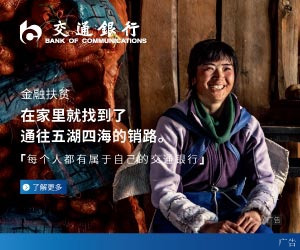I care more about professionalism (voice from the scene)
I have been making food documentaries for almost ten years. In my opinion, food is not only food, but also carries the Chinese family concept, lifestyle and even spiritual beliefs. My team and I used a documentary to show Chinese food and the connection between Chinese and food. I hope that the food taken by the show is not only delicious, healthy, but also culturally inherited.
Every time we create, we will suffer. Starting from "Song of the Forest" in 2007, our program received a good response. The question is how to bring new surprises to the audience in a seemingly repetitive way. For example, from "Flavour World 1" to "Flavour World 2".
Once, I chatted with the composer A Kun, hoping that he would retain the original symbolic characteristics of a certain piece of music, and it would be refreshing. A Kun rubbed his hands and said: "It's almost impossible, from 0 to 1 is refreshing, it's qualitative change; from 1 to 2, it's called quantitative change." From the first season to the second season, it is a process of quantitative change. But people are always so complicated, requiring both stability and change. I do not want to lose the original audience, but also want to attract more people through change.
In the past, when we made documentaries, it was more about conveying our deep traditions and wisdom of our ancestors. However, "Flavour World" is different. When we look at China under the framework of the entire world, we will find that China has never been an island of gourmet food, and the best ideas and ideas of mankind will always be the same. For example, in regions around the world with the same latitude and similar climatic conditions, people will make ham, and in the absence of communication, the production methods are very similar. It can be said that every shooting gives us a lot of interesting surprises.
Three years ago, I and several colleagues co-founded the Daolai documentary laboratory. It was born in the age of the Internet, and our main creators are all from traditional media. We know very well that once a small production organization has no audience, it loses its lifeline. Our strengths are professional production, so although many new attempts have been made in technical means, I am more concerned about professionalism.
This professionalism is guided by the audience and meets the audience's needs for storytelling and audio-visual performance as far as possible. There are no stars to join the documentary, and more rely on the true capture of details of life and the presentation of dramatic factors in life to attract the audience. For example, in the story of the Nepalese cliff hunting honey in the second season (see the picture), in order to show the thrilling scene, the photographer hangs on the top of the cliff to shoot the thrilling action of the honey hunter. In another story, we collaborated with foreign photographers to record how the Malaysian Bajau people searched for sea urchins underwater, and took pictures of life in the world's rare waters. Going up the mountain and the sea, in fact, all hope to bring the audience the immersive feeling. This time, we also strengthened the sense of drama and conflict in the way of storytelling.
But such attempts are careful and cautious, and we hope to gradually explore through the feedback of the audience. Listen to the opinions of the audience and look for the "greatest common divisor". Whether it is the front-end topic selection and story selection, or the later editing and rhythm adjustment, I hope to stand in the perspective of more audiences and find a balance point of interest to more people.
The progress of society has given people more rights to express their opinions in public spaces. The emergence of the Internet has exacerbated the differences between different opinions. But I always feel that when we live together in this world, more often we seek common ground while reserving differences and seek common ground.
As we all know, since more than ten years ago, the state has supported the documentary industry. At the same time, the great abundance of material production has also contributed to the continuous rise of the gourmet industry. Gourmet documentaries frequently appear on traditional media and online platforms. Audiences really need it, but fatigue bombardment also caused an overdraft in viewing. In particular, the constant innovation angle and continuous improvement methods of domestic and foreign counterparts give us immense pressure. In addition, the maturity of the domestic documentary audience is also unprecedented. We can only hold a pious and awe-hearted spirit, and try our best to avoid it.
Looking back on the creative process of "Flavour World 2", the biggest difficulty comes when the show is about to end, and the new crown pneumonia epidemic is spreading around the world. Now that the program is airing, if the audience can not only see the deliciousness but also the beauty of human beings in this documentary, and thus cherish today even more, that is our companion.
(The author is a documentary director)
Chen Xiaoqing

